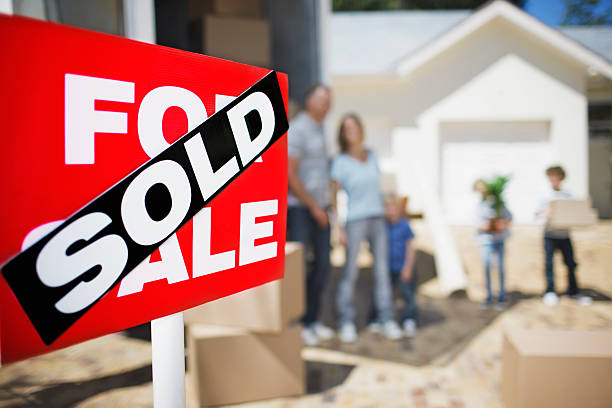What Does It Cost To Sell Your House?
When arranging to sell your house in Australia, you’re more likely to wonder how much you’ll get for the sale. But whatever that figure will be, it must pay off the costs incurred from selling it. You realise, without saying, that the first expenses will be your real estate agent and solicitor. Knowing you’ll incur those fees helps you project a more realistic budget from the final sale price. But other costs are involved too. This may come as a shock if you’re selling the house to liquidate the asset and divide the proceeds. Many Australians might only sell one house during their lifetime. Their experience in selling will be limited. They may entertain an uninformed notion as to what they’re expecting in return and not the expenses they failed to budget for. This is known as counting chickens before they’ve hatched. So, what should you expect to pay?
How Much Does It Cost To Sell Your House?
Selling your house in Australia is pricey. Your real estate agent and conveyancer are just the two obvious expenses. But there are many more outlays hidden in the mix that you might not be aware of. However, if you choose the right real estate agent, you can mitigate the disbursements. You must be sure that the agent you choose is sensitive to your desire to limit outgoings. Nevertheless, the main fees you’ll pay will be your real estate, conveyancer/solicitor, and marketing fees. Marketing costs are an integral expenditure borne by the vendor and may be paid in several ways. The agent you choose when you sell your property will advise you. You may pay for marketing on top of your commission or pay a flat fee for their combined services. While marketing overheads tend to be around $5000, an agent may charge a flat fee of $5000–$10,000.
If you agree to a fixed percentage fee, then you’ll be charged a percentage of the final sale price. Similar to that is the tiered scale fee. Unlike the fixed percentage, this may increase if the sale price rises. Again, it’s a matter of your choices and what you negotiate with your agent. However, the average varies from state to state, and you’ll pay more in a regional area. The typical rule of thumb is around 2%-4%, again, depending on whereabouts you’re from. Coming after the primary real estate agent’s remuneration is the commission for a conveyancer or solicitor. They oversee the legal and statutory processes of transferring a house from one person to another. The conveyancer prepares, executes, and lodges documents to ensure everything meets the legal requirements of a property sale. Just like with real estate agents, their fee structures vary. But it’s usually around $1000-$3000.
The Indirect Costs When You Sell Your House
You have more to consider when you sell your house than simply hiring a real estate agent. Moreover, they’d be amiss in their duties if they didn’t point these things out when you do. We’ll assume that you’re selling a pre-loved home that could be potentially many years old. To market your house, you’ll most likely need to make upgrades and repairs. These might range from changing power-points and door handles to replacing roofing tiles and sliding doors. It all depends. If you want to add value to your home and reach your desired sale price, you’ll have to spend money. If the house you’re selling is the inheritance of a deceased estate, you’re unlikely to be living there. This means that you’ll need to pay for basic maintenance costs such as lawnmowing. Your real estate agent should have professional contacts to assist here, but the cost is separate.
The maintenance and upgrades will be important, and you won’t want to hire a slacker, either. The buyer’s inspectors will be meticulous when checking over the property. Any defects will either be a deal-breaker or will result in them lowering their offer. These are not idle considerations, nor is home staging. Home staging involves hiring a professional to seek out and highlight the most saleable elements of your house. If you have a spiffy dining room, they’ll highlight that. If it’s light that your house has to offer, they’ll emphasise the natural light to its best effects. They may bring in furniture to accentuate the liveability of certain rooms in your house. This service can set you back an average of $6,000, again, depending on your house and location. Your expenses will differ depending on the state in which you live. It’s best to research your locality.
In A Nutshell
The fees that you pay for the services we’ve outlined will vary from state to state and suburb to suburb. Some cities are more expensive, while others are cheaper. But just because you live outside the city doesn’t mean you’ll pay less. Indeed, agent fees and services will likely cost more. This is because fewer agencies are dealing with those areas. As such, they charge more because their workload is greater. Nevertheless, the costs you can expect when you sell your house are as below:
- Real Estate Agent Commission & Fees
- Solicitor/Conveyancer fees
- Marketing Costs
- Home Staging
- Upkeep and repairs
Conclusion
This is all about budgeting. It’s not unknown for the inexperienced or naïve to overlook the costs that will be deducted from the sale price. This is especially true if you’re selling a house for the first time and haven’t experience with the property market. A ballpark figure puts the total estimates of the costs we’ve outlined at around $20,000. That may be much more, or a bit less, depending on your circumstances. However, you shouldn’t be in the dark about what you’ll be facing or what needs to be done. If you are about to sell your house you’ll find out everything you need to know with the services of a top real estate agent. If you are selling your house and need that advice, we can help. Contact Perfect Agent. We’ll match you with the best agent for you!




